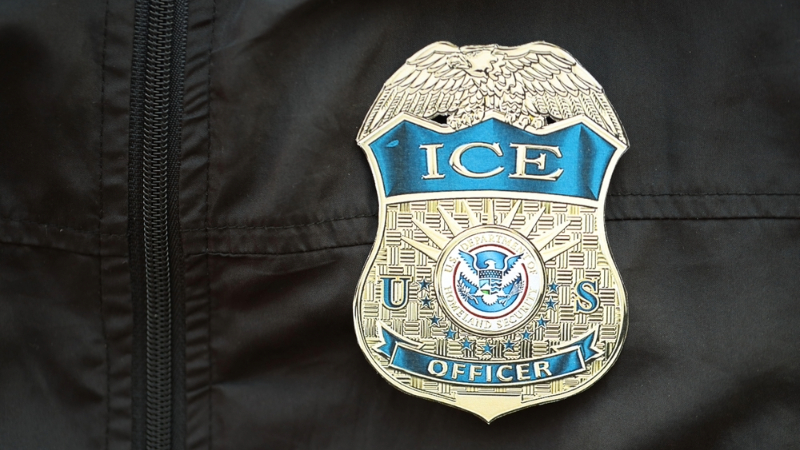
Forty bicameral Democrats alerted state governors on Wednesday to a data-sharing policy that allows Immigration and Customs Enforcement (ICE) officers access to resident records.
Sen. Ron Wyden, D-Ore., and Rep. Adriano Espaillat, D-N.Y., led the letters sent to 19 state governors, including the governors of the U.S. Virgin Islands and Guam. They urged states to take steps to block ICE’s access to information held within their Department of Motor Vehicles (DMV) database without needing to notify the state.
DMV data is shared through the nonprofit organization Nlets, which is managed by state law enforcement agencies and allows data sharing between state, local, and federal law enforcement, justice, and public safety agencies.
Lawmakers cited Nlets data that showed the nonprofit enabled 290 million queries for DMV data within the past year, nearly 300,000 of which came from ICE and more than 600,000 from Homeland Security Investigations (HSI).
Currently, only five states – Illinois, New York, Massachusetts, Minnesota, and Washington – prevent ICE access to DMV databases. Oregon is also implementing laws to block data sharing.
“Because of the technical complexity of Nlets’ system, few state government officials understand how their state is sharing their residents’ data with federal and out-of-state agencies,” lawmakers wrote, adding that “it seems apparent that elected officials … have not been fully briefed on the current scale of state information sharing … nor the availability of technical controls to restrict data sharing with these federal agencies.”
Democrats explained in their letter that current state-level efforts to shield DMV data from immigration authorities are largely toothless because they don’t cover networks like Nlets, which doesn’t disclose why data is being sought when a request is made.
“This commonsense step will improve public safety and guard against Trump officials using your state’s data for unjustified, politicized actions, while still allowing continued collaboration on serious crimes,” lawmakers wrote.
The letters suggested states request a briefing from Nlets on how many data requests and disclosures it facilitated for ICE and HSI over the last two years, and consider blocks for other federal agencies that do immigration-related work.
“To be clear, blocking agencies’ unfettered access to your state’s data through Nlets will not prevent federal law enforcement from obtaining information needed to investigate serious crimes, but taking these measures will significantly increase accountability and reduce abuse by permitting your state employees to review data requests from blocked agencies first,” Democrats explained.
Nlets also reportedly connects to new facial recognition software, accessible on mobile devices used by ICE agents, called “Mobile Fortify,” which allows agents to scan passersby’s faces and identify them using 200 million photos, lawmakers said.
Mobile Fortify has been a focal point for Democrats who have written multiple letters to top Trump administration officials demanding more details on the app’s use and its discontinuation.
